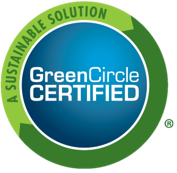Limited vs. Reasonable Assurance – What’s Right for You?
One of the first questions companies face when preparing for GHG verification is: Do we need Limited Assurance or Reasonable Assurance?
Here’s the difference:
Limited Assurance: Provides confidence that nothing has come to the verifier’s attention indicating material misstatement. It involves document review, sampling, and analysis — offering a credible, audit-ready result at lower cost and effort.
Reasonable Assurance: A deeper level of scrutiny, with more testing, site visits, and internal resource demand. It gives a positive conclusion on the accuracy of your data, but it is far more expensive and time-consuming.
For most companies, Limited Assurance is the best fit. It satisfies key frameworks like the SEC, CSRD, and CBAM, while avoiding the high burden of Reasonable Assurance. Unless regulators or investors specifically demand the higher level, Limited Assurance delivers the credibility stakeholders expect.
At GreenCircle, we specialize in Limited Assurance GHG Verification because it strikes the right balance — strong enough to be defensible, efficient enough to be practical.
If you’re unsure which path your business needs, we can help you decide. Let’s discuss your reporting goals and determine the assurance level that makes sense for your organization.
Written by Sara Risley, Certification Officer, GreenCircle Certified
About Sara
Sara brings over 15 years of experience in product certification and regulatory compliance. Before joining GreenCircle, she served as the Vice President of Certification at Green Seal, where she led the certification department for two years. Prior to that, she led NSF International's food product certification division, overseeing independent verification for food labels and packaging claims such as Organic and Non-GMO certifications. Additionally, she spent five years as the technical operations lead at NSF International, managing ANSI-accredited standards for commercial food equipment, food contact materials, and water filters.




